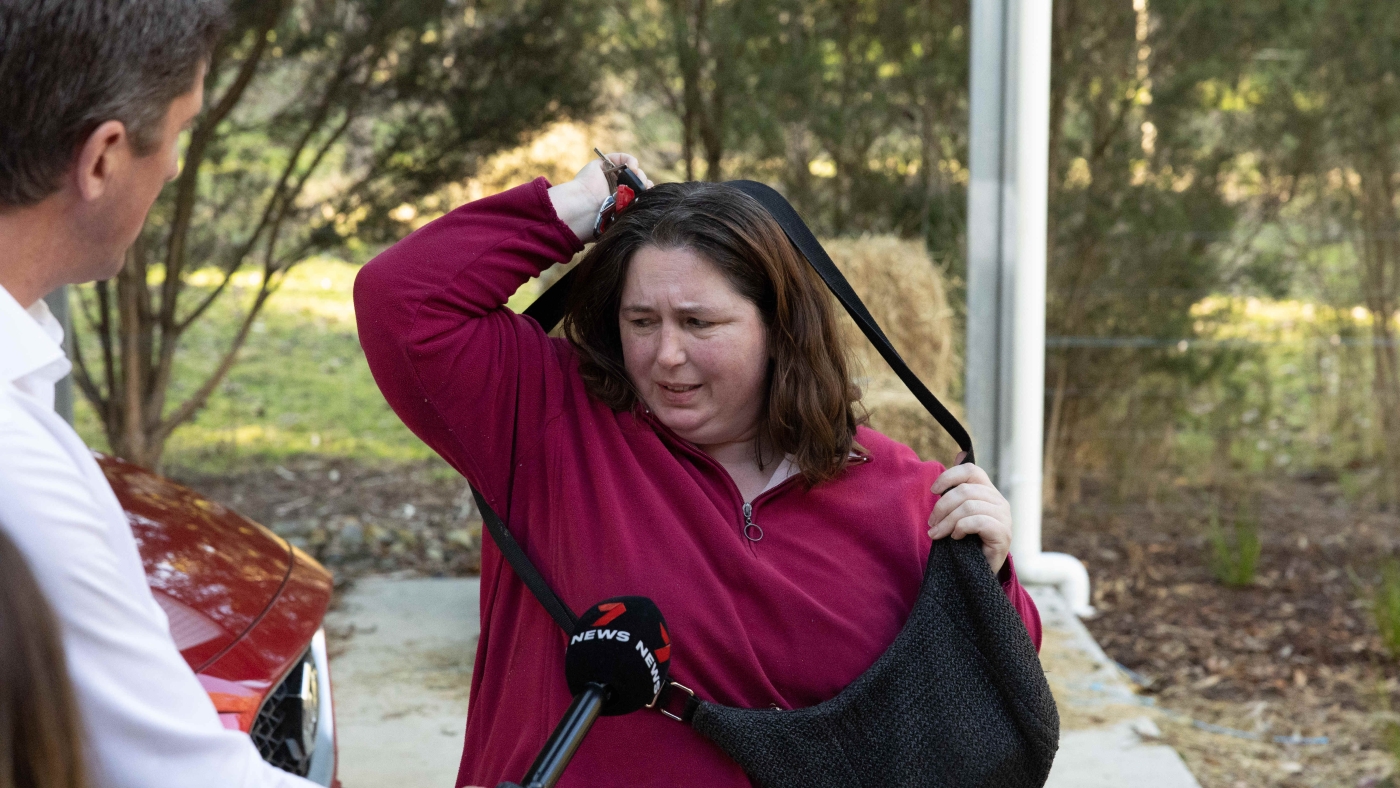An Australian woman, Erin Patterson, has been found guilty of murdering her in-laws using toxic mushrooms. The verdict came after a nine-week trial, concluding nearly two years of investigation into the deaths of three elderly relatives who consumed a meal she prepared.
The 50-year-old mother of two, who faces a life sentence, was convicted of murder and attempted murder following the July 2023 incident at her home in Leongatha, a small town about 85 miles from Melbourne. Patterson had served her estranged husband’s parents, aunt, and uncle a beef Wellington dish containing death cap mushrooms, one of the world’s most poisonous fungi.
The Trial and Verdict
The trial, initially expected to last six weeks, extended to nine, featuring over 50 witnesses and eight days of Patterson’s testimony. The jury’s main task was to determine whether Patterson intentionally included the deadly mushrooms in the meal. Prosecutors argued that financial tensions with her estranged husband might have motivated her actions, though they stopped short of providing a definitive motive.
Patterson, who pleaded not guilty, insisted the poisonings were accidental. Her defense claimed that foraged mushrooms accidentally made it into the dish, and her subsequent lies were driven by panic rather than guilt. However, the jury was convinced by the prosecution’s narrative, leading to a conviction.
Background of the Case
Patterson’s relationship with her husband, Simon, had been tumultuous since their marriage in 2007, with a permanent separation occurring in 2015. Despite sharing custody of their children, financial disputes reportedly strained their relationship further in 2022. In July 2023, Patterson invited Simon’s parents, Gail and Donald Patterson, and his aunt and uncle, Heather and Ian Wilkinson, for lunch.
During the meal, Patterson claimed she was diagnosed with cancer, a statement later proven false. Prosecutors argued this lie was a pretense to gather the adults without children present. The meal ended with all guests consuming individually prepared beef Wellington pastries, which Patterson admitted contained death cap mushrooms.
The Poisoning Incident
The day after the lunch, all four guests were hospitalized with severe gastrointestinal symptoms. Within a week, Gail and Heather Patterson died from liver failure, followed by Donald Patterson. Ian Wilkinson, the sole survivor, spent weeks in intensive care before recovering enough to testify at the trial.
Toxicologists confirmed that the symptoms were consistent with Amanita phalloides poisoning. However, the antidote was not administered immediately due to initial uncertainty about the mushroom’s presence. Despite other treatments, the victims’ conditions deteriorated rapidly.
Erin Patterson’s Defense
Throughout the trial, Patterson maintained her innocence, claiming any inclusion of poisonous mushrooms was accidental. Her defense argued that her actions post-incident, such as disposing of a food dehydrator and lying about mushroom foraging, were panic-driven rather than indicative of guilt.
Patterson’s lawyer, Colin Mandy, highlighted the lack of motive, emphasizing her good relationship with her in-laws and stable financial situation. He argued that her actions, such as purchasing the dehydrator in her name and taking photos of mushrooms, were inconsistent with premeditated murder.
Prosecution’s Argument
Prosecutor Nanette Rogers focused on what she termed Patterson’s “calculated deceptions.” These included the fabricated cancer claim, the deliberate inclusion of lethal mushrooms, and the subsequent cover-up efforts. Rogers alleged that Patterson had researched and foraged the mushrooms, ensuring she did not consume them herself.
“She had complete control over the ingredients that went into the lunch and took steps to ensure she did not accidentally consume death cap mushrooms,” Rogers stated.
Rogers also pointed to Patterson’s inconsistent accounts of her symptoms and her attempts to mislead investigators about the mushrooms’ source. Despite lacking a clear motive, Rogers argued that the evidence of guilt was overwhelming.
Implications and Next Steps
The case has drawn significant attention, highlighting the dangers of foraging and the potential for domestic disputes to escalate tragically. As Patterson awaits sentencing, the trial’s outcome serves as a stark reminder of the lethal potential of seemingly innocuous culinary ingredients.
Looking ahead, legal experts suggest the case may prompt discussions on food safety regulations and the legal responsibilities of individuals serving meals to others. Meanwhile, the families involved continue to grapple with the emotional aftermath of the trial and the loss of their loved ones.



































































